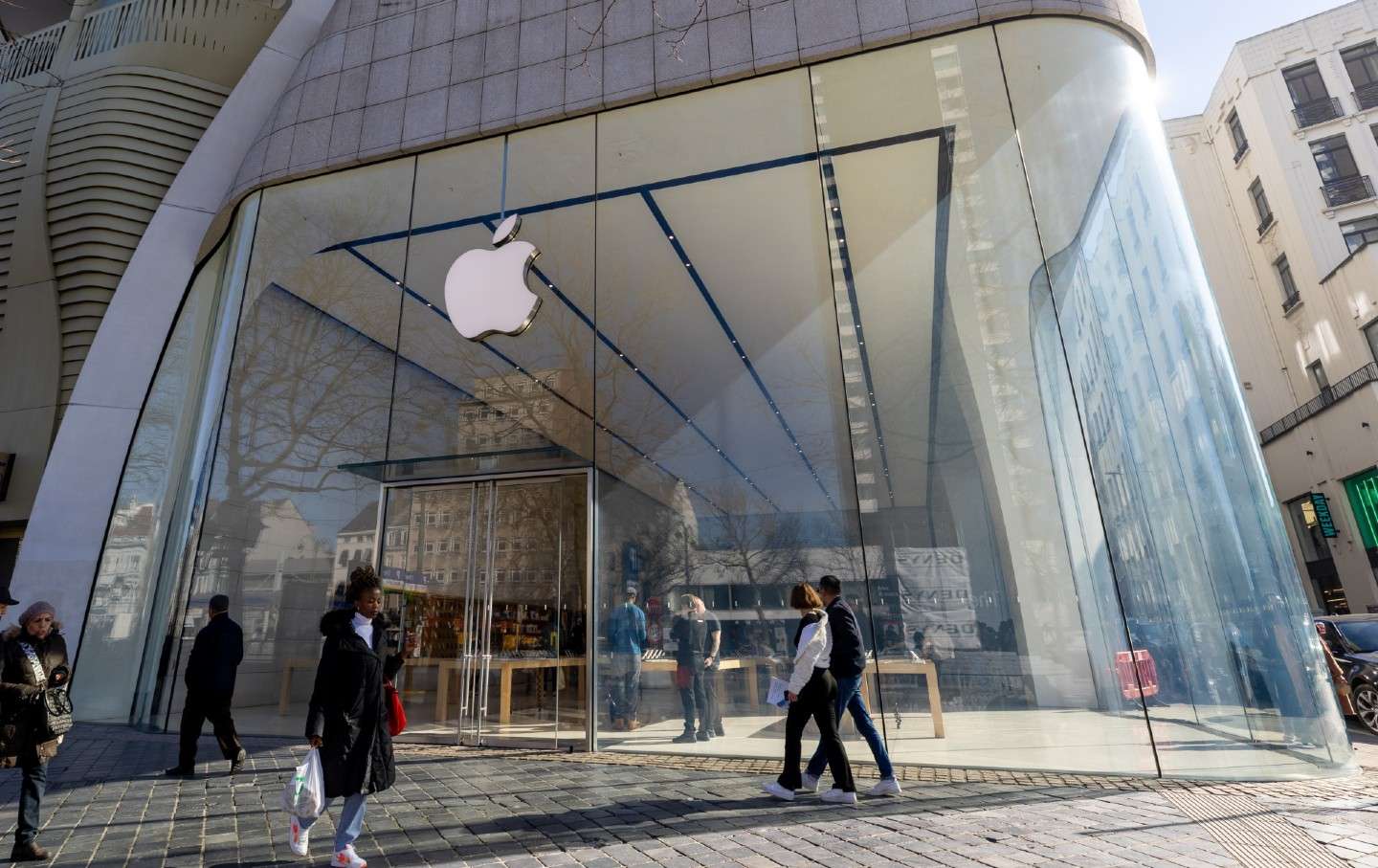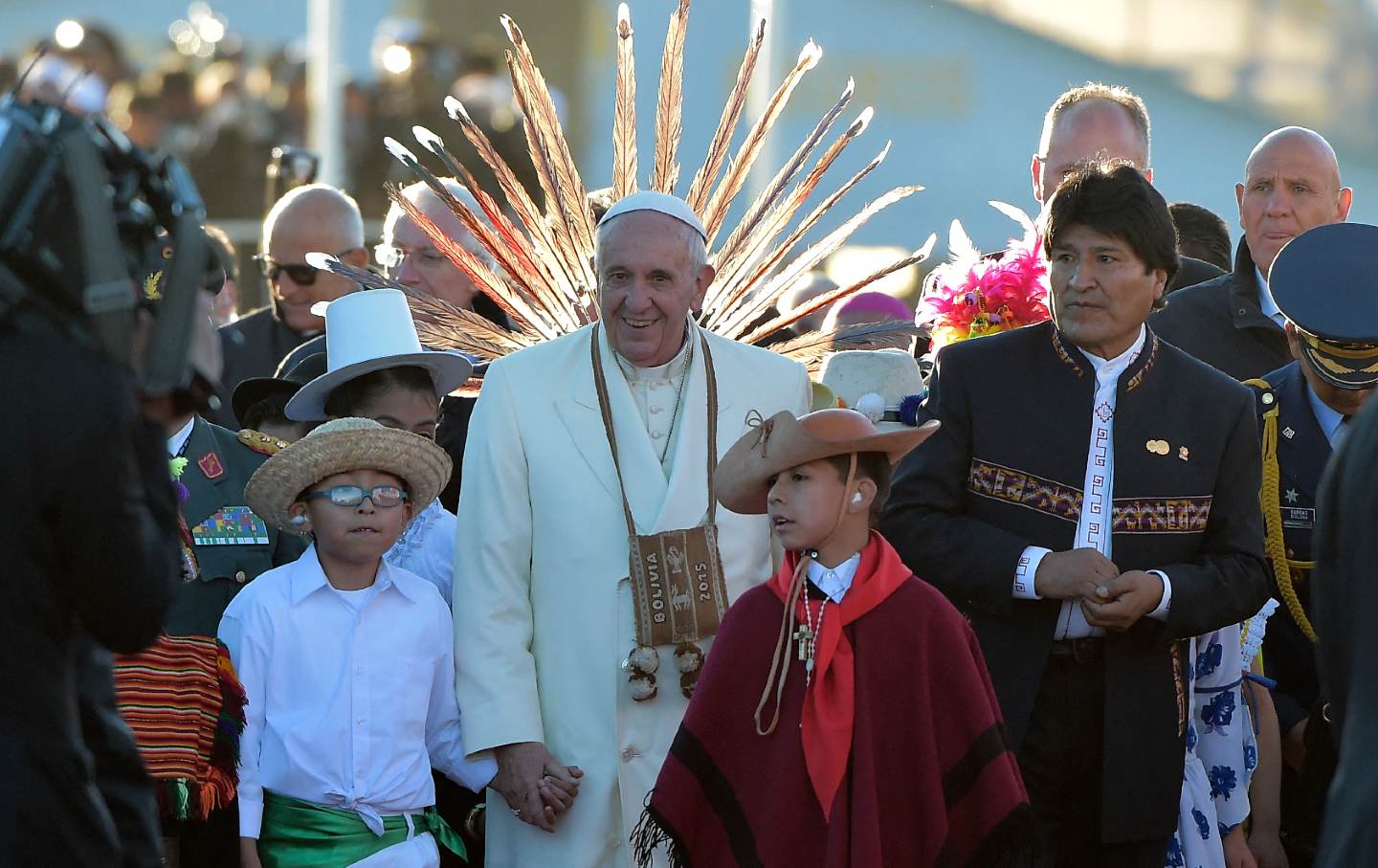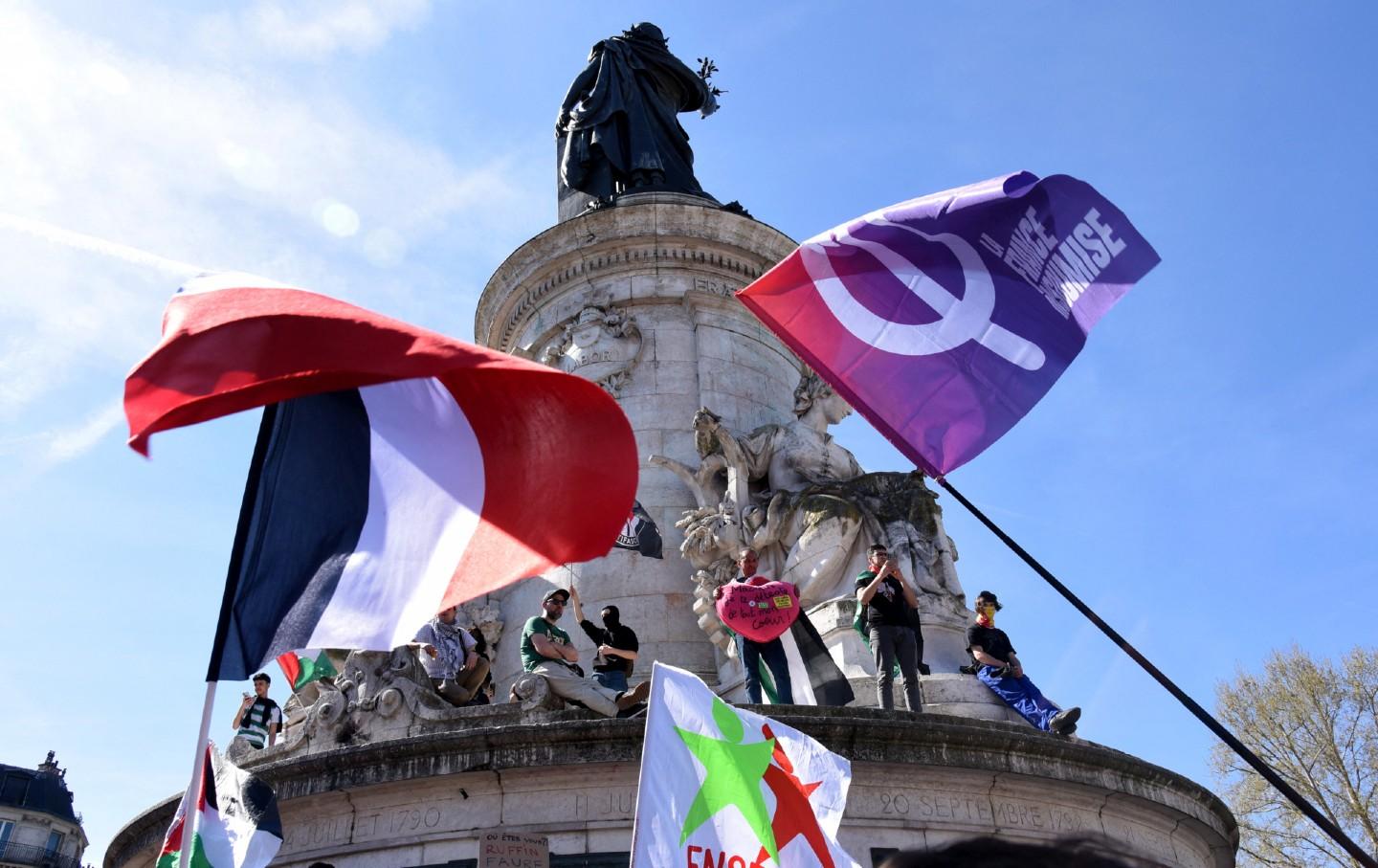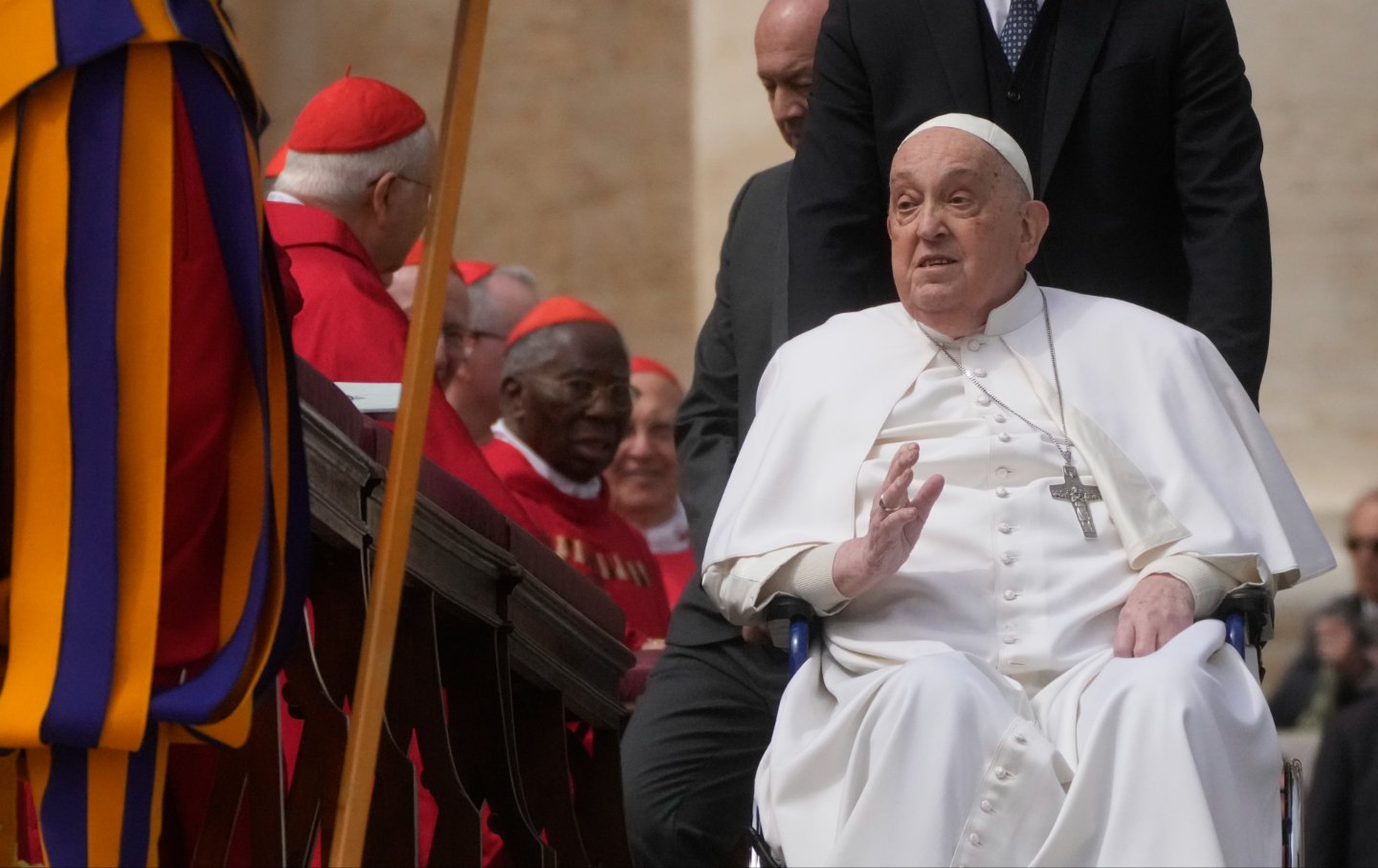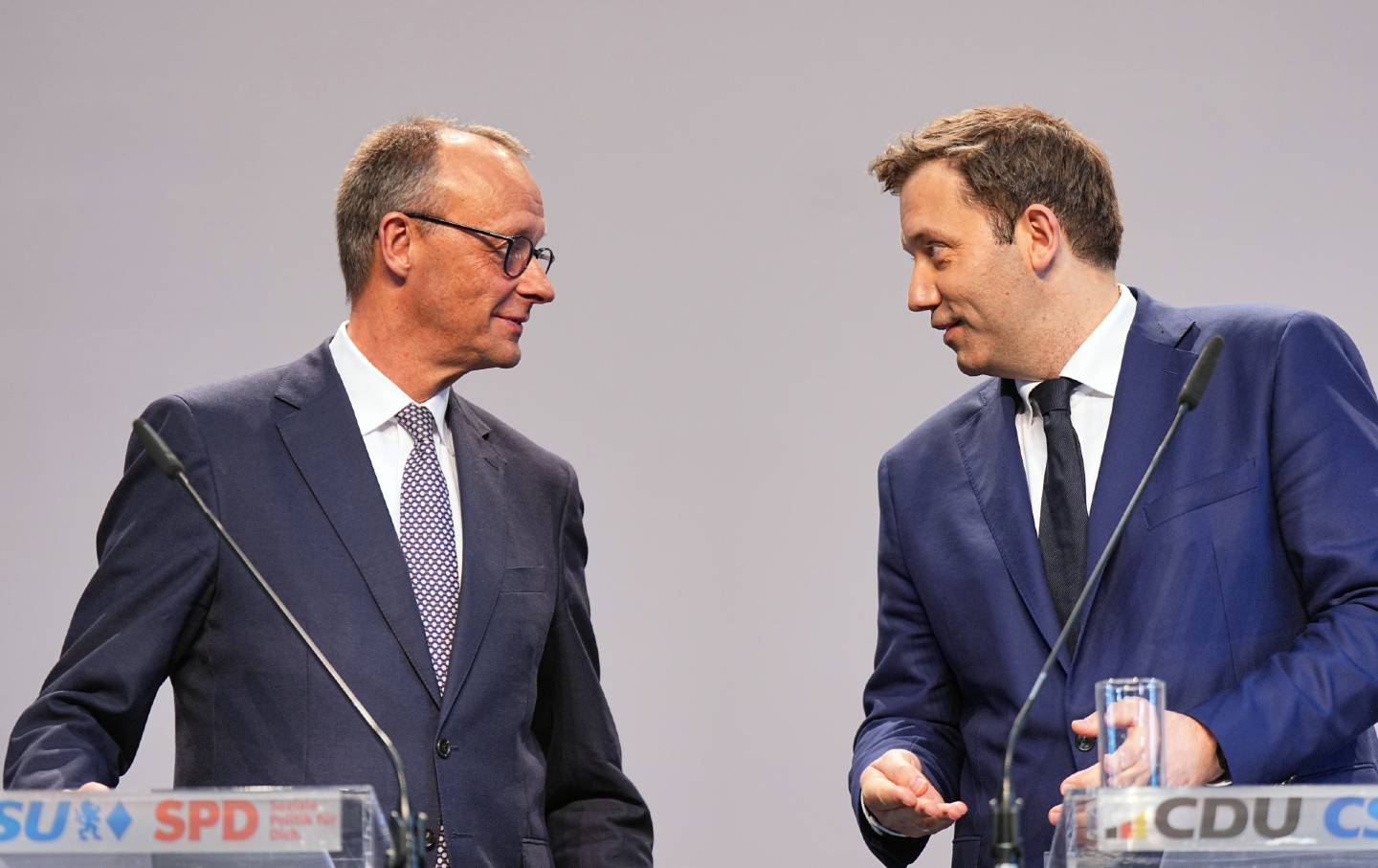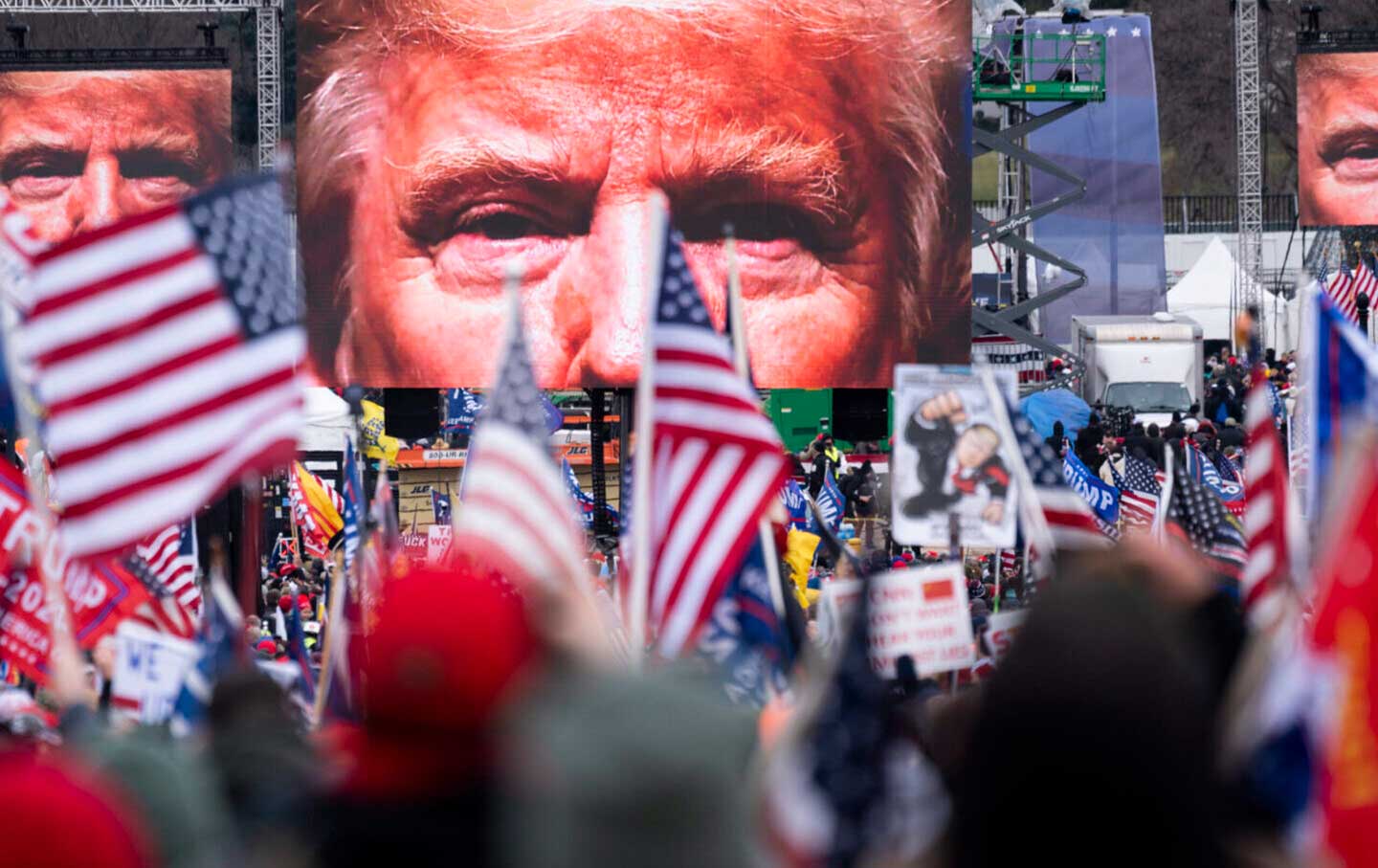The North of Gaza Is an Open Graveyard
For those trapped in northern Gaza, Israel’s “Surrender or Starve” policy means the possibility of death in one way or another, at any moment.
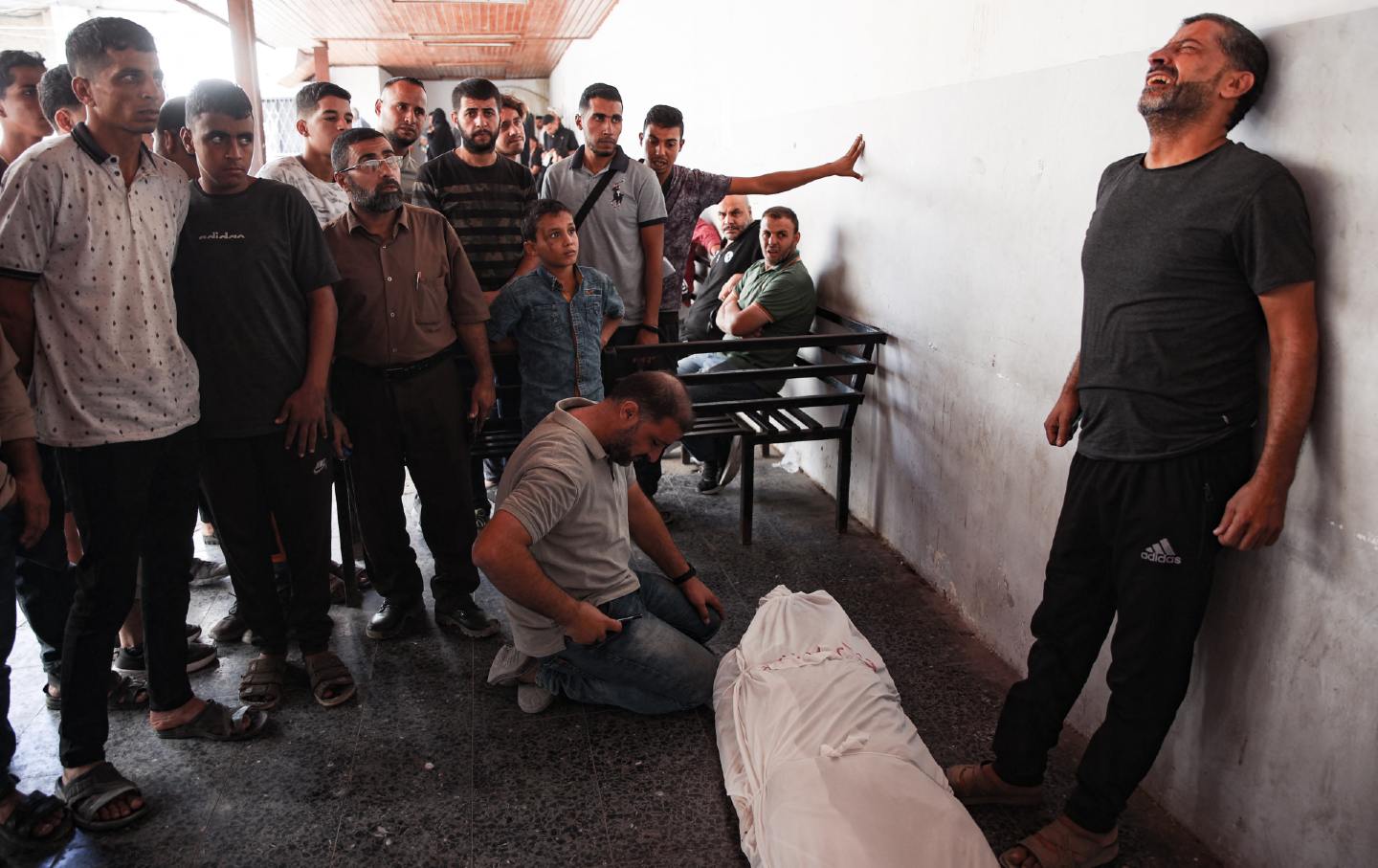
A man reacts as he stands near a shrouded body in the courtyard of the al-Maamadani hospital in the northern Gaza Strip on October 19, 2024.
(Omar Al-Qattaa / AFP via Getty Images)
As the world watches, Palestinians in Gaza are living through a deliberately engineered humanitarian catastrophe of epic proportions that worsens by the hour. In recent weeks, Israel has imposed a total siege of northern Gaza and intensified its bombardment here, with reports that Prime Minister Benjamin Netanyahu’s government is implementing a policy of starvation to force the remaining Palestinians south. Israel has already laid waste to much of Gaza, but if the international community does not act immediately, there will be nothing and no one remaining in the north.
The past year has tested our endurance in ways we could never have imagined. But the last few weeks have pushed us to the limit of anything that can be described as “living.”
Until October 22, I worked in the emergency room of the now-shattered Indonesian Hospital. As a doctor who graduated and returned to Gaza last year after a decade abroad, I dedicated my life to healing. But that mission has been stripped from me.
I worked in the hospital for eight months before being forced to leave when Israeli soldiers besieged the complex, leaving the hospital without power. Medical supplies had all but run out, and there was no way to treat the wounded. Ambulances struggled to reach the injured, their drivers risking their lives to navigate streets reduced to craters and rubble.
Inside the hospital, the scenes were beyond tragic. We had to make impossible choices: whom to save and whom to let die, not because their injuries were too severe, but because Israel’s siege meant we simply didn’t have the supplies to help them. I watched children die because we ran out of something as basic as antibiotics.
Many of my colleagues were killed, simply for doing their jobs. Others have been stranded in dangerous areas, unable to reach the hospitals where they are so desperately needed. Every day, we risk our lives, knowing that even the places meant to heal have become targets.
The north of Gaza is an open graveyard. There is no sanctuary left for hundreds of thousands of Palestinians still here. Seventy-two members of my own family have been killed. Hospitals, schools, and homes—places meant to shelter and protect—have been obliterated. Every space that once promised safety has been turned to dust. The scale of destruction is beyond measure, the human toll staggering.
The streets where children once played are now lined with bodies, and those of us who remain are trapped, surrounded by death. If the blast of the bombs doesn’t take us, the fires they cause do.
Palestinians here are cut off from food, water, and medical supplies. Families are scavenging whatever they can find to stay alive—rotting flour, expired canned goods, anything that can be consumed. Fresh vegetables, meat, and milk have been distant memories for over a year, especially for our children, whose bodies have become fragile from malnutrition. Hunger is a weapon, and it’s being used to kill us slowly. Parents watch helplessly as their children waste away, growing weaker by the day, their tiny bodies no longer able to fight the infections spreading in the overcrowded shelters.
I have lost count of how many times my own family and I have been displaced. We’ve been forced to flee from one wrecked building to the next, searching for safety that doesn’t exist.
We now live in a UN school by the Jabaliya refugee camp, but even here, in what should be a place of refuge, we are not safe. Bombs fall so close that we can feel the walls shake. Classrooms meant for learning are filled with the cries of children too young to understand why their world is crumbling around them. The overcrowding is unbearable, dozens of families crammed into tiny rooms, desperately clinging to the hope that we’ll survive the next strike.
What is happening in Gaza is an assault on childhood itself and a war against the very essence of what it means to be human.
The Biden administration and international community must open their eyes, and more importantly, their hearts. What Israel is doing in Gaza violates every standard of international law, every shred of human decency, and sets a dangerous precedent. The siege, the bombardment of homes, schools, and hospitals, the mass killing of civilians are crimes that demand more than condemnation. They demand immediate action to stop them.
After a year of unremitting horror, Israel’s onslaught must finally be brought to an end. I swore an oath to save lives, but that sacred mission has been taken from me. The tools I need to heal are being destroyed, and the lives I’ve sworn to protect are being decimated. Palestinians in Gaza are not asking for much. Just the right to live in freedom and with dignity and security. To see their children grow. To have food and medical care. These are not luxuries; they are basic human rights. Rights that are being torn away as the world looks on, silent.
The time to act is now. The Biden administration and other Western governments must stop enabling our suffering.
Hold the powerful to account by supporting The Nation
The chaos and cruelty of the Trump administration reaches new lows each week.
Trump’s catastrophic “Liberation Day” has wreaked havoc on the world economy and set up yet another constitutional crisis at home. Plainclothes officers continue to abduct university students off the streets. So-called “enemy aliens” are flown abroad to a mega prison against the orders of the courts. And Signalgate promises to be the first of many incompetence scandals that expose the brutal violence at the core of the American empire.
At a time when elite universities, powerful law firms, and influential media outlets are capitulating to Trump’s intimidation, The Nation is more determined than ever before to hold the powerful to account.
In just the last month, we’ve published reporting on how Trump outsources his mass deportation agenda to other countries, exposed the administration’s appeal to obscure laws to carry out its repressive agenda, and amplified the voices of brave student activists targeted by universities.
We also continue to tell the stories of those who fight back against Trump and Musk, whether on the streets in growing protest movements, in town halls across the country, or in critical state elections—like Wisconsin’s recent state Supreme Court race—that provide a model for resisting Trumpism and prove that Musk can’t buy our democracy.
This is the journalism that matters in 2025. But we can’t do this without you. As a reader-supported publication, we rely on the support of generous donors. Please, help make our essential independent journalism possible with a donation today.
In solidarity,
The Editors
The Nation

